Talks on Iran nuclear deal expected in Feb
Updated: 2014-01-28 09:26
(Agencies)
|
||||||||
UNITED NATIONS/BRUSSELS - The opening round of talks between Iran and six world powers on a long-term deal for Tehran to curb parts of its nuclear program in exchange for a gradual end to sanctions is expected to take place next month in New York, a US official said on Monday.
"It is our understanding that the first round of comprehensive negotiations will be in New York in mid-February with dates still being confirmed," US State Department spokeswoman Marie Harf said in an email.
"New York - agreed to by EU High Representative (Catherine) Ashton and Iranian Foreign Minister (Mohammad Javad) Zarif - has a similar support infrastructure to Geneva," Harf said. "We believe that United Nations and international support is important for work on a comprehensive agreement."
A senior Western diplomat said that the six powers were looking at the early part of the week of February 16, though the talks were unlikely to begin before February 18 due to a US holiday.
In Washington, congressional aides said an attempt to impose new sanctions on Iran over its nuclear program has stalled in the US Congress and lawmakers were discussing whether to introduce a much weaker measure.
Last week the United States and the European Union began following through on promised sanctions relief for Iran covering oil exports, trade in precious metals and automotive services as part of a nuclear agreement signed in November that began taking effect on January 20, US officials said.
In exchange for steps that Tehran had taken to halt its most sensitive nuclear-related activity, the White House said the United States, Britain, France, Germany, Russia, China and the European Union will "follow through on our commitment to begin to provide the modest relief agreed to with Iran."
Last week, a US official said Iran was currently exporting about 60 percent less oil than it was two years ago and would be held to those reduced levels.
Iran is under US, EU and UN Security Council sanctions for refusing to halt uranium enrichment and other sensitive atomic work that could help it develop weapons.
Tehran rejects allegations from Western nations and their allies that it is seeking the capability to produce nuclear arms, insisting its atomic ambitions are limited to the peaceful generation of electricity.
The November 24 interim deal between Iran and the five permanent UN Security Council members plus Germany took nearly two months to hammer out in three rounds of talks in Geneva late last year. Western diplomats say that negotiations on a long-term deal will likely take much longer.
Iranian President Hassan Rouhani said last week at the World Economic Forum in Davos, Switzerland that Iran is determined to negotiate a comprehensive deal on its nuclear program with the six world powers so it can develop its battered economy, inviting Western companies to seize opportunities now.
The November 24 interim deal is valid for six months, though it can be renewed based on mutual agreement.
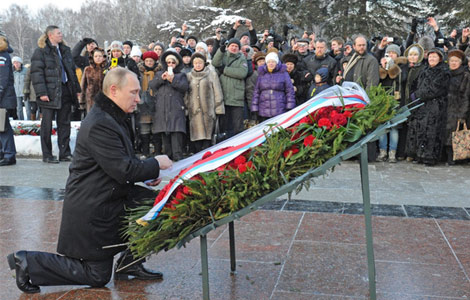
 Putin pays tribute to Siege of Leningrad victims
Putin pays tribute to Siege of Leningrad victims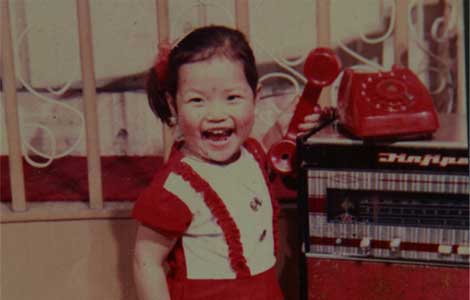
 Chinese ace Li Na before she was famous
Chinese ace Li Na before she was famous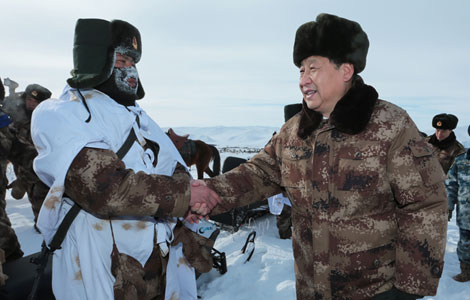
 Xi visits soldiers on frozen northern border
Xi visits soldiers on frozen northern border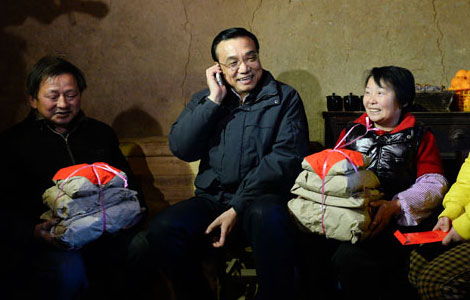
 Premier calls for action to relieve poverty
Premier calls for action to relieve poverty
 Tough Guy event in England
Tough Guy event in England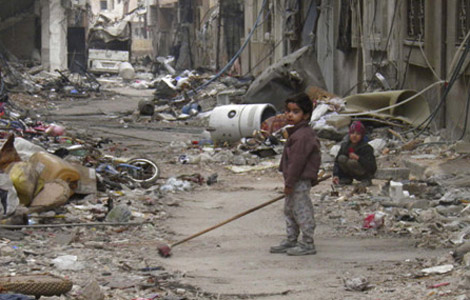
 Syria talks bring offer of exit from siege of Homs
Syria talks bring offer of exit from siege of Homs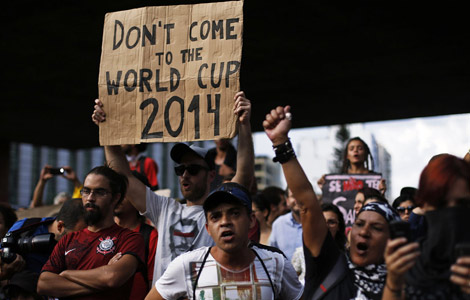
 Anti-World Cup protests wane in Sao Paulo
Anti-World Cup protests wane in Sao Paulo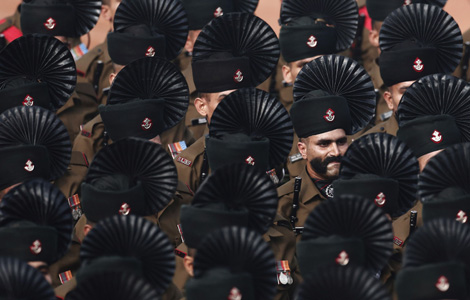
 India celebrates 65th Republic Day
India celebrates 65th Republic Day
Most Viewed
Editor's Picks

|

|

|
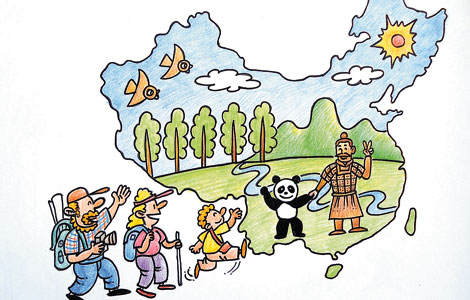
|

|

|
Today's Top News
South China Sea archives open in Hainan
Some good US advice for Japan on comfort women
Border control for H7N9 tightens
Int'l hacker got caught in China
Party to reform discipline system
Talent returns to China, but progress slow
300 ill on Royal Caribbean ship
US mall shooting gunman identified
US Weekly

|

|







